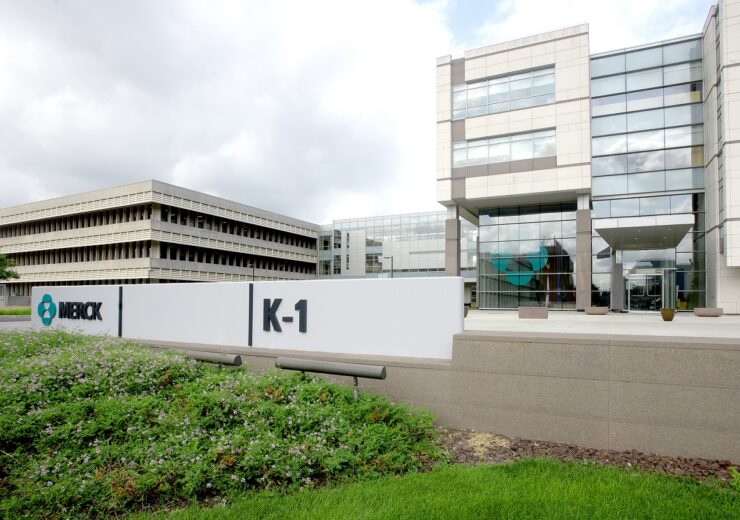The FDA approval is based on Phase 3 CLEAR/KEYNOTE-581 trial, in which Keytruda plus Lenvima combination was superior to sunitinib

Merck headquarters in Kenilworth, NJ. (Credit: Merck Sharp & Dohme Corp.)
The US Food and Drug Administration (FDA) has approved Merck’s Keytruda, in combination with Eisai’s Lenvima, to treat advanced renal cell carcinoma (RCC) in adults.
Keytruda is an anti-programmed death receptor-1 (PD-1) therapy that works by increasing the ability of the body’s immune system to help detect and fight tumour cells.
The drug was previously approved to treat melanoma, non-small cell lung cancer (NSCLC), head and neck cancer, Hodgkin lymphoma (cHL), and other indications.
Lenvima is an orally available multiple receptor tyrosine kinase inhibitor that prevents kinase activities of vascular endothelial growth factor (VEGF) receptors.
It was previously approved as a monotherapy to treat differentiated thyroid cancer (DTC), hepatocellular carcinoma (HCC) and in combination with everolimus to treat advanced RCC.
The US FDA reviewed the approval for Keytruda plus Lenvima under its Real-Time Oncology Review (RTOR) pilot programme.
Merck Research Laboratories oncology clinical research vice president Gregory Lubiniecki said: “This FDA approval reinforces the potential of Keytruda plus Lenvima, which is now approved for two different types of cancer.
“In the study, Keytruda plus Lenvima demonstrated a survival benefit for patients with advanced renal cell carcinoma, supporting the importance of this combination as a new first-line treatment option for these patients.
“At Merck, we are focused on delivering meaningful innovations that extend the lives of people with cancer. We are proud to see how our collaboration with Eisai can now help to improve survival outcomes for patients with advanced renal cell carcinoma and are committed to further exploring Keytruda plus Lenvima in other difficult-to-treat cancers.”
The FDA approval is based on results from the Phase 3 CLEAR/KEYNOTE-581 trial, in which Keytruda plus Lenvima showed superior outcomes compared to sunitinib.
The combination treatment improved the efficacy outcome measures of progression-free survival (PFS), overall survival (OS) and objective response rate (ORR).
In the study, treatment using Keytruda plus Lenvima reduced the risk of disease progression or death by 61%, and the risk of death by 34% compared to sunitinib.
Also, the treatment demonstrated 71% confirmed ORR was compared to 36% with sunitinib.
Keytruda plus Lenvima achieved a complete response (CR) rate of 16% and partial response (PR) rate of 55% compared to a CR rate of 4% and a PR rate of 32% for sunitinib.
Keytruda is linked to immune-mediated adverse reactions, while Lenvima is associated with adverse reactions, which may be serious or fatal.
The drug can cause foetal harm when administered to a pregnant woman and should be interrupted, reduced, or discontinued, based on the severity of the adverse reaction.
Eisai oncology business chief medicine creation and chief discovery officer Takashi Owa said: “This FDA approval is truly significant for the advanced renal cell carcinoma community.
“The CLEAR/KEYNOTE-581 trial shows treatment with Keytruda plus Lenvima resulted in superior outcomes across progression-free survival, overall survival and objective response rate versus sunitinib in patients with advanced renal cell carcinoma.
“This milestone is a testament to our dedication to developing new therapeutic options for people living with advanced cancers, which is fuelled by our passion for aiming to improve cancer care for patients, and amplified by the teamwork resulting from our collaboration with Merck.”
